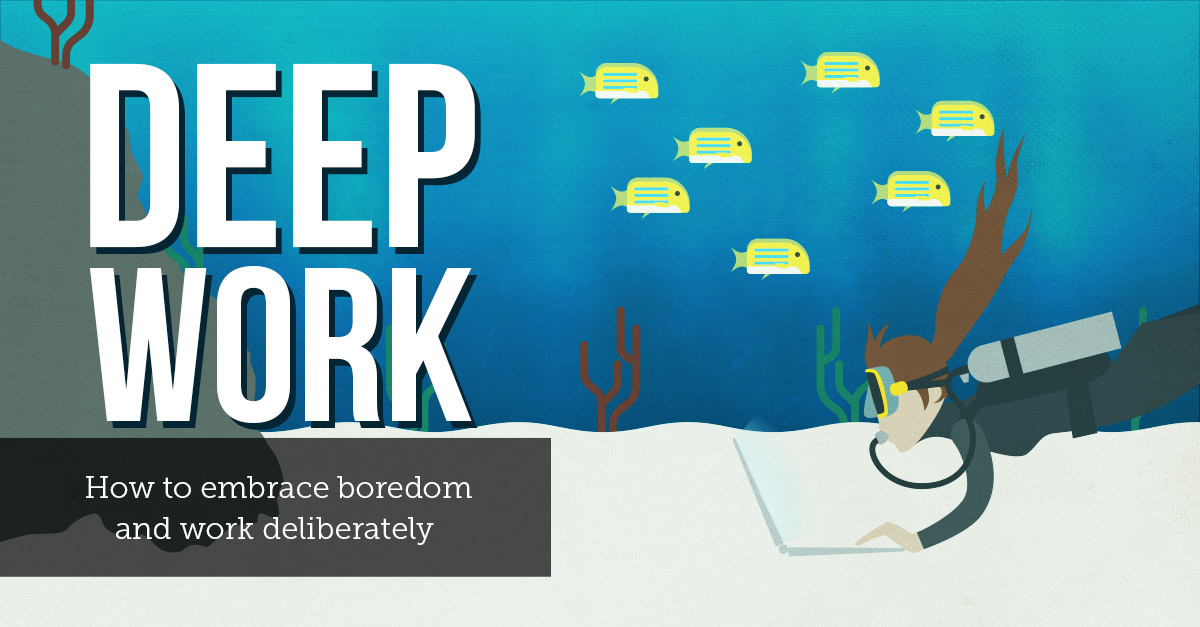This is a continuation of my habit of jotting down key learning from the podcasts I listen to everyday. Today, my fitness band says that I walked 9kms for 1 hour and 53 minutes. This also means that I listened to that much duration of the audio book. That’s a good one fourth of the book, ‘Deep Work’ that I’m listening to.
I carry a piece of paper and a pen during my walk and jot down the points that I find useful. Here is a synopsis of those important points.
Schedule Blocks of Time for Different Work: What Cal Newport suggests is to pre-schedule important work into your calendar. You can do this by blocking off time for important activities. For example, every day I walk in the morning while listening to an audio book. By blocking the time between 6am to 8am, I ensure that this time is only allocated for exercise and audio books. Should any other task come my way, I will ensure they don’t happen in this preset time. This ensures continuity of my daily exercise. Another example could be that I schedule everyday between 12 noon to 1 pm for new business proposals. Then I ensure that no meetings or conference calls happens during this time. This ensures that I churn out new business proposals every day which is crucial for generating new business.
Rinse and Repeat: This type of scheduling is particularly useful for pursuing large or complicated tasks. By allocating a set time every day, you make sure that you can chip away and make daily progress towards the end goal. A good example is my reading habit. While I buy lots of books, I really suck at reading. Especially, big books like the ‘Deep Work’ which is over 70,000 words. However, since I integrated listening to this audio book as part of my daily walking routine, I was able to finish listening to the entire book within 6 days.
Decide Your Schedule in Advance: Cal Newport suggests that blocking time off for certain tasks should be done well in advance. Even better if its done on a regular basis so that you follow a rhythmic pattern and over a period of time, it becomes a habit. By imbibing this practice and making it a habit, you no longer need to exert any extra effort to get it done. It becomes second nature to you.
Trust Your Structure: Once you decided on your schedule, just trust it. Don’t question it and just follow the structure. Initially, this would be uncomfortable and it’s important to anticipate that discomfort. This way, you don’t get put off. It’s also important to be flexible. You don’t necessarily have to follow the schedule strictly. Make small leeway and keep making small adjustments so that you feel comfortable following your schedule.
Reduce Shallow Tasks: A shallow task is something that does not add much value to your overall goal. For example, checking your Facebook often, constant messaging on WhatsApp or binge watching YouTube without an objective are all things that you can slowly reduce. You don’t have to cut it out completely. But be conscious of where your time is going and slowly but surely reduce those time-wasters. The best way to do that is by tracking where you spend your time daily.
Reduce Travel & Time Wasting Commitments: Don’t let others control your time. Feel free to say no to any requests that take your time. Be polite but firm. Travel can be a huge time sink. Think of the opportunity cost. Accept it only if you can greatly benefit. If not, politely refuse.
Set a Senders Filter for Emails: All of us spend an inordinate time on email. Cal Newport suggests to put a ‘Senders Filter’ which puts the onus on the sender. The idea is that you set the expectations well in advance to the sender. Will write a more detailed blog post on this interesting topic tomorrow.

